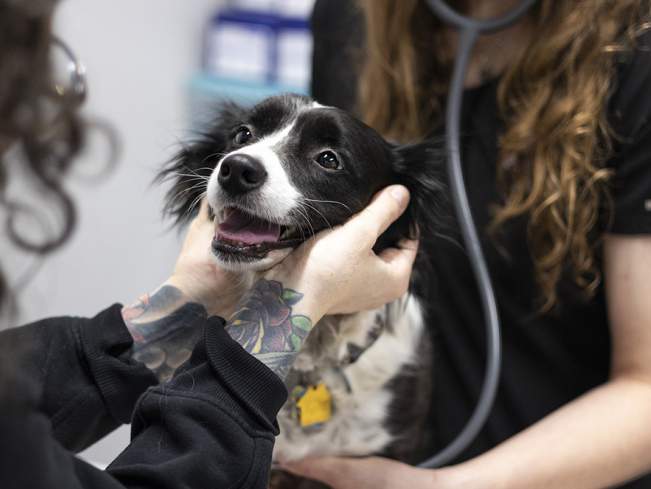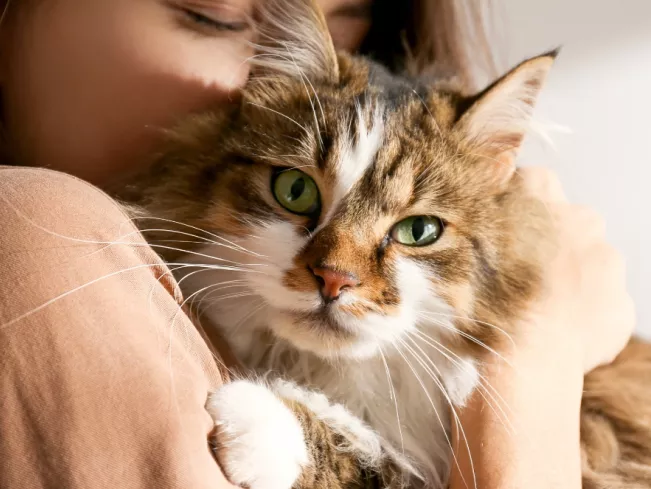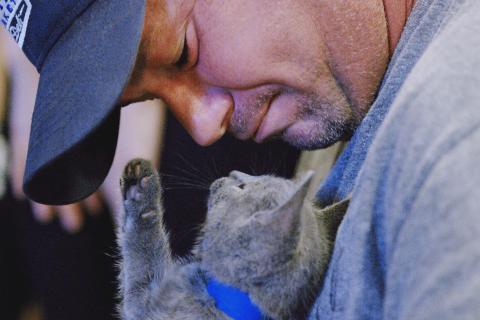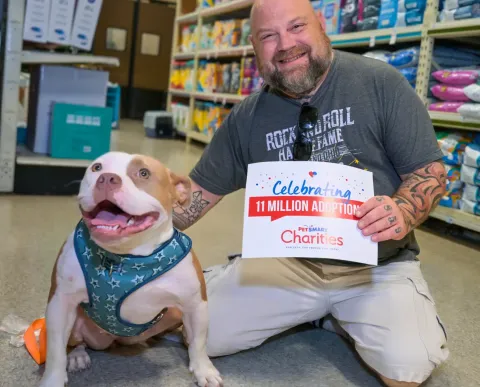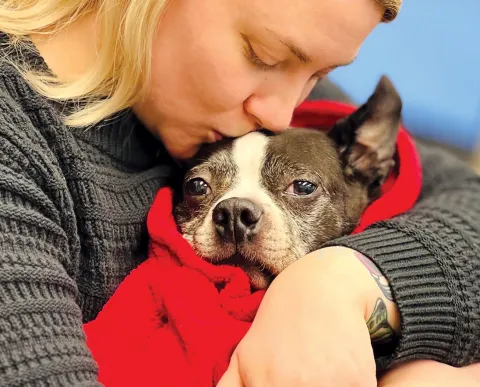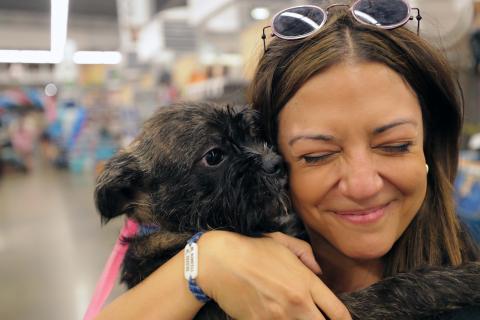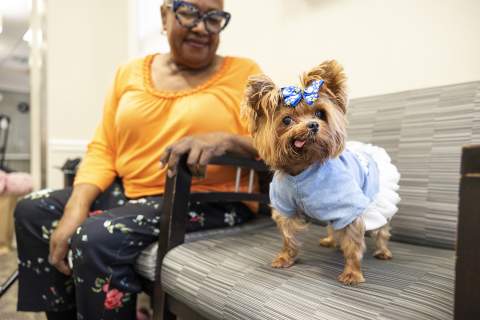Innovation starts with an idea, but a good idea requires so much energy to bring to life. I’m excited to share breaking news about a brand-new grant program at PetSmart Charities that started with a moment of clarity and a bold idea. We call it the “Incubator,” because we’re growing something new with each grant and giving them the time and resources to ensure each program flourishes.
The backstory: as we celebrated many successes in the animal welfare space in adopting shelter pets and significantly reducing euthanasia rates (hooray!), we knew more of our attention needed to turn to keeping pets in their homes. Our research uncovered two essential data points so seismic, they got our attention – fast. First, in one of the wealthiest places on earth, 50 million pets in the U.S. don’t have access to the basic veterinary care they need to thrive. 50. Million.
As you likely know, the barriers are often financial. Even among median incomes, nearly 30% of pet parents say a veterinary bill of $499 would land them in debt. But there are others. Many communities lack a nearby practitioner, and it’s tough to trust a vet that doesn’t speak your native language or have an appreciation for diverse cultural pet care practices. The issue becomes systemic because small problems have a way of becoming more painful — and more costly. And then, tragically, too many pet parents have had to make the crushing decision to surrender their pets when they just can’t get the care they need.
It shouldn’t be a privilege to enjoy the love of a pet. In fact, giving a pet a better life helps their people enjoy better, healthier, happier lives, too.
The other data point that took our breath away: we estimate it would cost more than $20 billion annually to ensure all pets receive adequate care. No one organization can tackle this mammoth crisis alone, but as leaders in the space, we knew we had to invest more resources. We announced early in 2023 a commitment of $100 million over the next five years to improving access to vet care, and $18 million in Canada. There is nowhere more in need of equitable access than in communities that have been historically excluded and are often left out of the veterinary system entirely.
Knowing we had to do something unique, maybe even revolutionary, our team created the Incubator program to address veterinary care from the ground up. The 4-year grant program will support increased veterinary access in 20 communities in the U.S. and Canada, and just kicked off with the first “class” of grantees, focused on Latinx communities in the U.S. and Indigenous communities in Canada. Then, 20 more grants, focused on working with different historically excluded communities, will be added each year.
Incubator: It all begins with relationships
Part of incubation is protection. Instead of the usual accountability metrics that require grantees prove their impact immediately, Incubator partners are instead given the rare gift of time and resources. During the first year, their focus is to engage in the serious but less quantifiable work of relationship building. Local communities know their needs best — but are rarely asked. It’s critical partners respectfully engage with communities and listen first. Instead of approaching with pre-packaged solutions based on preconceived ideas, partners, with support from PetSmart Charities, gather needs by asking questions first. That helps build trust before collaborating to develop plans for culturally responsive veterinary care programs.
It's a unique process, but not an easy one.
In this first phase, leaders will build relationships with members of each of the 10 Latinx communities in the U.S. and 10 Indigenous communities in Canada to better understand what each wants and needs to support their pets’ health. The next phase, beginning in 2024, will move to provision of veterinary care, based on learnings from this year, about what, how and when communities need to access vet care.
The Humane Society of Southern Arizona (HSSA) is a shining example of how innovation and community meet. Their team identified a tight-knit community with more than 80% Latinx population in Douglas, Arizona, as their project in which to invest support from PetSmart Charities. There, 28% of residents navigate life below the poverty line, and the city’s animal shelter copes with a high euthanasia rate. Both pets and people lack access to health care and other social services. HSSA had already been laying groundwork to support One Health, a practice to which both people and their pets would gain access to health care under one roof. HSSA’s Nubia Romo grew up in Douglas and has been successfully leveraging her strong relationships in the community to inspire grassroots leaders. “It’s easy because I know everyone there, and they trust me.”
“In our culture, pets are part of the family but sometimes hold different roles. Some are working animals and some spend a lot of time outdoors, but are cherished. We’re so excited to bring this incredible program that we know will make a big impact on their care,” Nubia shared.
This is an exciting time for us at PetSmart Charities and PetSmart Charities of Canada as we support our partners to build new relationships and innovate, together with communities, how to create lasting programs for pet health care. We hope you will continue to connect with us and follow the journey on our social channels to build a better world for both ends of the leash, wherever that leash may be found.
Kate Atema is the director of community grants and initiatives at PetSmart Charities. Connect with her and keep the conversation going on LinkedIn.

